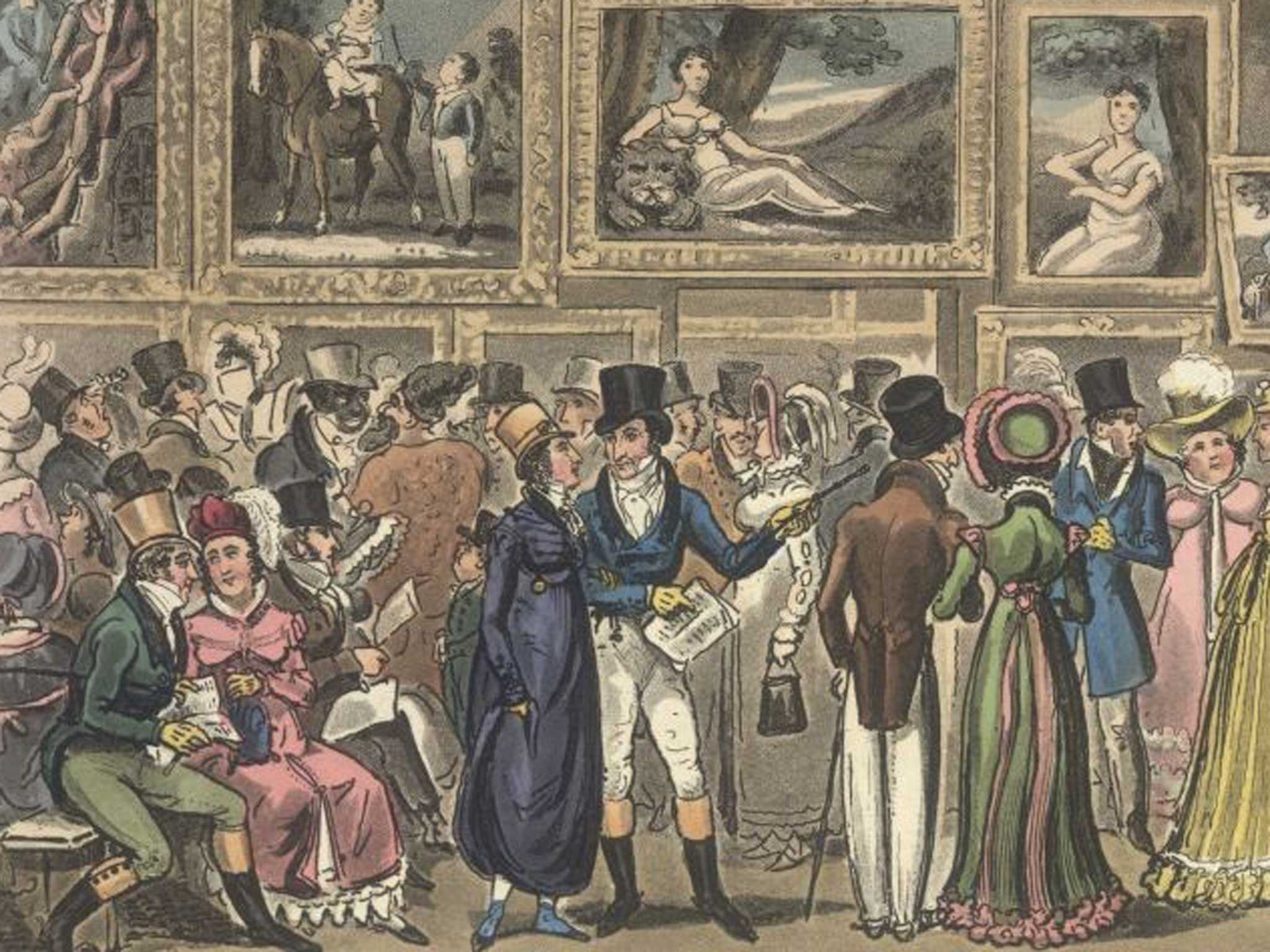From shopping to scandal: What did the Georgians ever do for us? Quite a lot, actually...
A new exhibition shows what was invented during the reigns of Georges I to IV

We think of them as 21st century activities: shopping trips, flicking through a magazine, gossiping at Starbucks. But dozens of apparently modern habits were born 300 years ago in the Georgian period, according to an exhibition at the British Library. Georgians Revealed, which opens this weekend, shows how so much of what we take for granted, from gossip columns to garden design, harks back to the reigns of Georges I to IV. The period between 1714 and 1830 saw Britain's population treble to 24 million, and kicked off major social mobility. Here, we examine five areas of modern life, and ask: how much has Britain really changed?
Magazines
Then The first daily newspaper was printed in 1702, prompting an explosion of dailies, weeklies and monthlies covering everything from politics and financial news to gossip. The printed fashion plate was born, with illustrations of what celebrities, such as the courtesan Fanny Murray, were wearing. A collection of lavish colour plates was published as the Gallery of Fashion in 1794, the antecedent to Vogue. Titles such as the European Magazine and London Review were aimed at men, while The Lady's Magazine carried the subtitle: "Entertaining Companion for the Fair Sex, Appropriated Solely to Their Use and Amusement".
Now Tatler, founded in 1709, The Spectator (1711), and a Sunday newspaper called The Observer (1791), are still with us. The Lady's Magazine was wound up in 1837 and has been replaced by Grazia and Heat. About 3,000 consumer magazine titles are now published in the UK.
Shopping
Then London's Smithfield, Billingsgate and Covent Garden markets were built in the 18th century, as produce was brought into the city from across Britain, along the new canal network. Goods were coming into British ports from around the growing empire too, and competition was rife. Tradesmen began advertising vigorously, and grocers set up permanent stores, such as Fortnum & Mason (1757). The mall dates from this time, with the creation of Burlington Arcade in 1819.
Now Britons spent £314bn last year, at 287,100 shops. Despite the growth of the internet, online sales accounted for less than 10 per cent, at £29bn, suggesting we are still a nation of shopkeepers. The average Briton spends £445 on Christmas.
Coffee shops
Then The first coffee house appeared in London by 1652, and by the 1700s there were hundreds. They didn't offer lattes, but were places for reading papers and pamphlets and gossiping. Many had party political affiliations. One Frenchman hailed them as the "seats of English liberty," though women were banned.
Now The UK now has 15,723 coffee outlets with a turnover of £5.8bn. Costa alone has opened 183 outlets in the past year. Meanwhile, Indian tea imports fell from 22 to 16 million kilos in the past five years.
Celebrity culture
Then The Georgians had their own Kylies and Kardashians as the press, novels and biographies pandered to a taste for real-life stories. The novelist Laurence Stern admitted: "I wrote not to be fed, but to be famous", the courtesan Kitty Fisher leaked stories to newspapers, and self-created celebrities, such as Beau Brummel and the actor David Garrick, flourished.
Now The idea of fame has been around since Virgil described fama as a horrible creature with multiple tongues and tattling mouths. Our modern obsession with celebrities arguably led to phone-hacking. We'll soon test the fallout from that, with the creation of a new press charter, but public interest in others' private lives is unlikely ever to go away.
Subscribe to Independent Premium to bookmark this article
Want to bookmark your favourite articles and stories to read or reference later? Start your Independent Premium subscription today.

Join our commenting forum
Join thought-provoking conversations, follow other Independent readers and see their replies